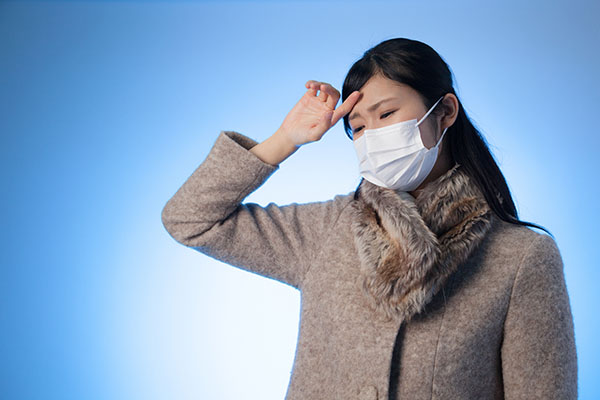A Checklist for Women’s Health

Women have distinct health needs that change continuously, such as during pregnancy and menopause. Many ailments have different effects in women, compared to men. For instance, although cardiovascular diseases affect men and women alike, women have a higher risk of dying from a first heart attack compared to men — the symptoms of heart diseases are also different across gender.
Read the women's health checklist highlighted below to know which tests, screenings, or examinations are required as a healthy adult.
Women’s health checklist
General health
Annual wellness check: Go for an annual physical, or well-woman exam. These routine checkups include a physical examination, vaccination updates, and screenings to detect the presence of diseases. Your primary care physician may check your routines, including diet, exercise, and tobacco use. If you have been diagnosed with a chronic illness, you may need to visit more frequently.
Breast health
Clinical breast exam: Women between the ages of 20 to 39 need to have their breasts checked clinically by a doctor every one to three years. Women over the age of 40 should have their breasts examined annually.
Mammogram: This is advisable for women aged 40 and above, or earlier if they have a history of breast cancer in the family.
Reproductive and sexual health
Cervical cancer screening: Women should have a Pap smear test in their 20s for cervical cancer screening. This screening should be done every three years. If you are between 30 and 65, you should get a Pap test and human papillomavirus (HPV) test every five years, or a Pap test every three years.
Women between the ages of 65 and 70 can stop going for screenings after having had three or more Pap tests in 10 years without irregular results.
Sexually transmitted infections: Women between the ages of 13 and 64 should get HIV tests at least once as a part of their regular healthcare. Women who are prone to HIV exposure should go for tests once every year. Pregnant women should also get HIV tests at the early stages of pregnancy.
If you are under 25 and sexually active, you should go for gonorrhea and chlamydia screening until you reach 25. If you are above 25, discuss the need for this screening with your primary care doctor.
Eye, ear, and dental health
Eyes: Upon reaching 40, every adult should get a thorough eye examination. You should see an ophthalmologist before then if you have a preexisting eye condition, family record of eye disease, or if you are predisposed to severe conditions, or suffer eye-related injuries.
Hearing: You should have your hearing checked if you have issues with hearing.
Dental exams and cleanings: Visit the dentist twice yearly, unless advised otherwise.
Other recommended items for the checklist include:
- Cardiovascular health
- Bone health
- Colorectal health
- Skin Health
- Immunizations
- Mental health
Bottom line
This checklist is not exhaustive, which means you need to talk to your primary health physician about your specific health needs. Ask what tests your doctor would suggest and how frequently you should go for screenings or checkups. Also, do not forget to discuss your family and medical records, preferences, and lifestyle with the doctor to help he or she create a specific health routine for you.
Request an appointment here: https://hillendale.millenniummedicalcare.com or call Millennium Medical Care Woodbridge at (703) 945-1942 for an appointment in our Woodbridge office.
Check out what others are saying about our services on Yelp: Women's Health in Woodbridge, VA.
Recent Posts
The common cold can make anybody miserable. You can prevent this by taking zinc. This element can slow down the cold’s development. If you want to know how zinc can help you face the common cold, here are the details.Studies showed that zinc supplements can help prevent sickness in people. Researchers also showed that zinc…
A multitude of conditions can warrant the need for professional pain management. While pain management can come in the form of medication or treatment, urgent care typically performs the latter. Learning the difference between short and long-term options can help you learn when to consult a doctor.Whether a patient has a chronic condition that causes…
Contracting the common cold can be easier for some people than for others. Specific risk factors increase your odds of getting sick with a cold virus. Understanding why these factors can make you sicker can help you avoid them. It could even save you a trip to the urgent care clinic. If you want to…
Contracting the common cold involves suffering from sore throat, sneezing, nose, and cough. It is a disease affecting many communities. Colds may be common, but these infections are enough to make you miss work or classes. The most effective way to fight colds is to prevent them. Going to your local urgent care facility can…


